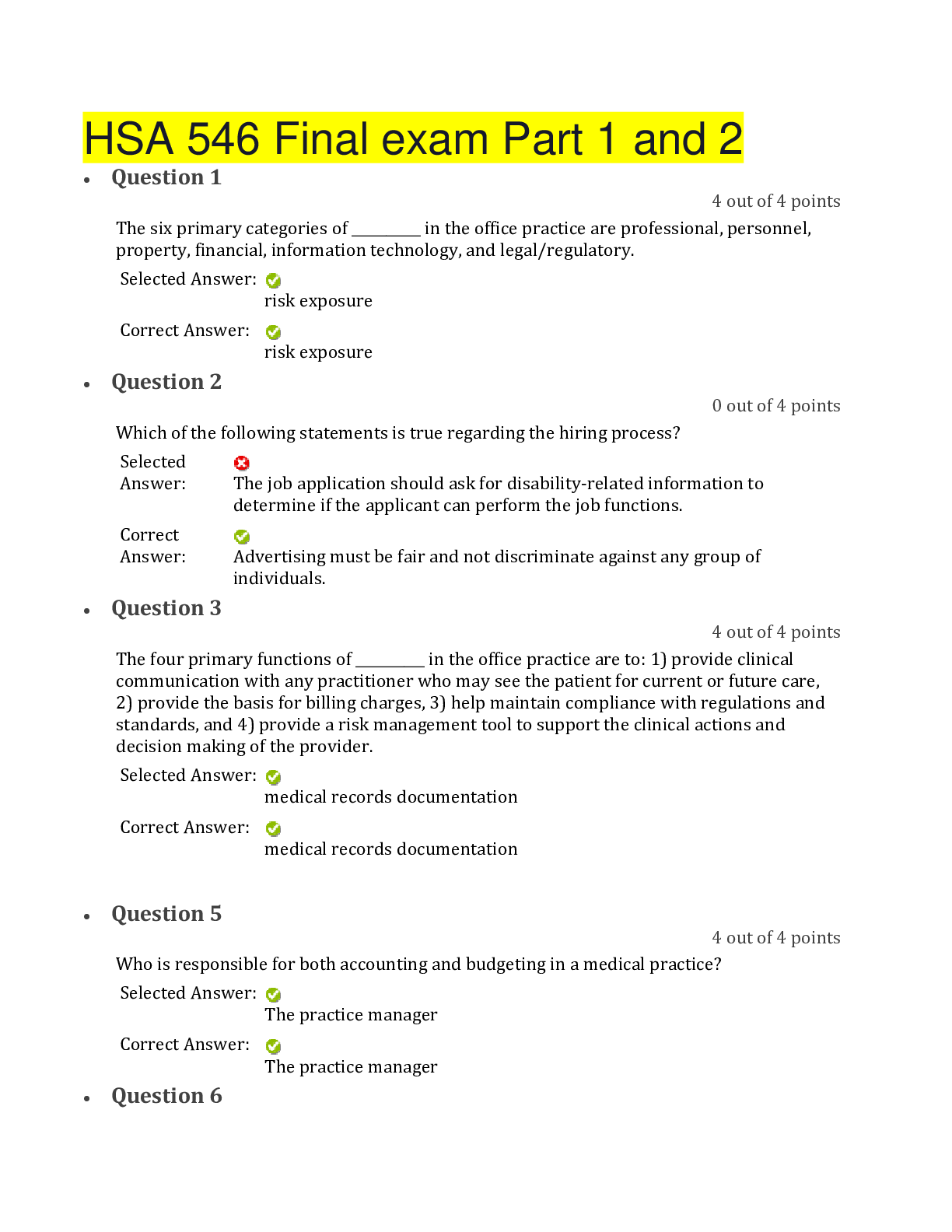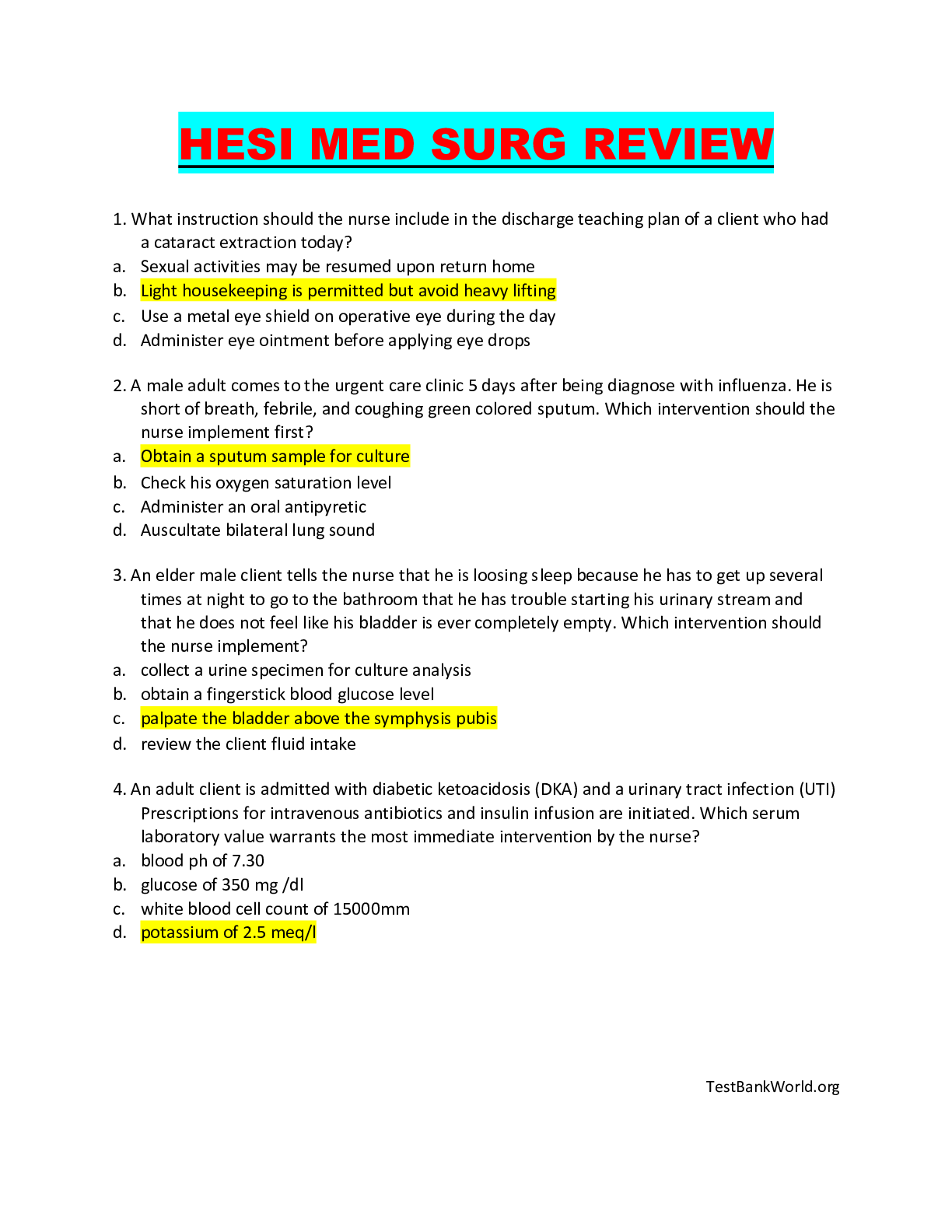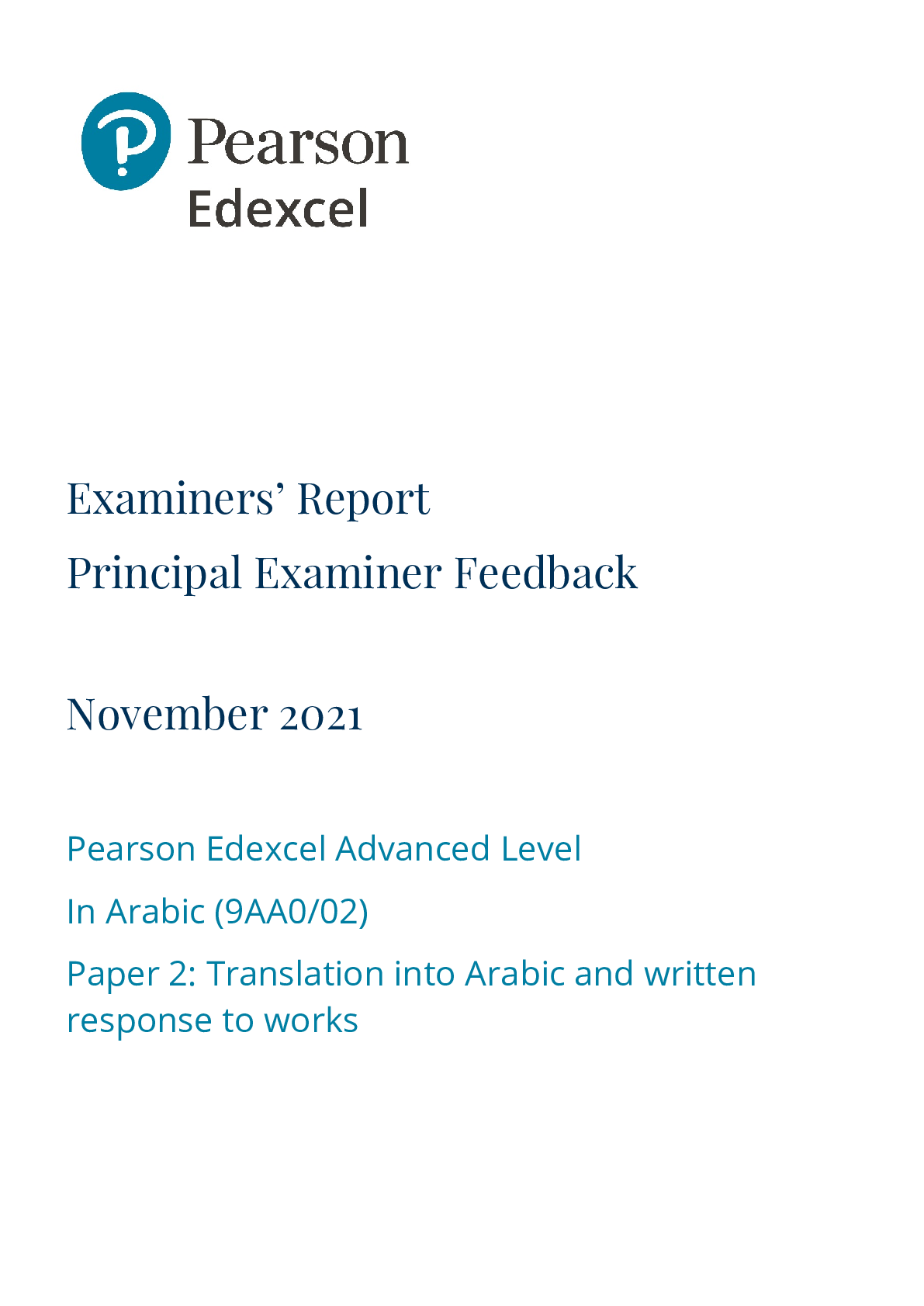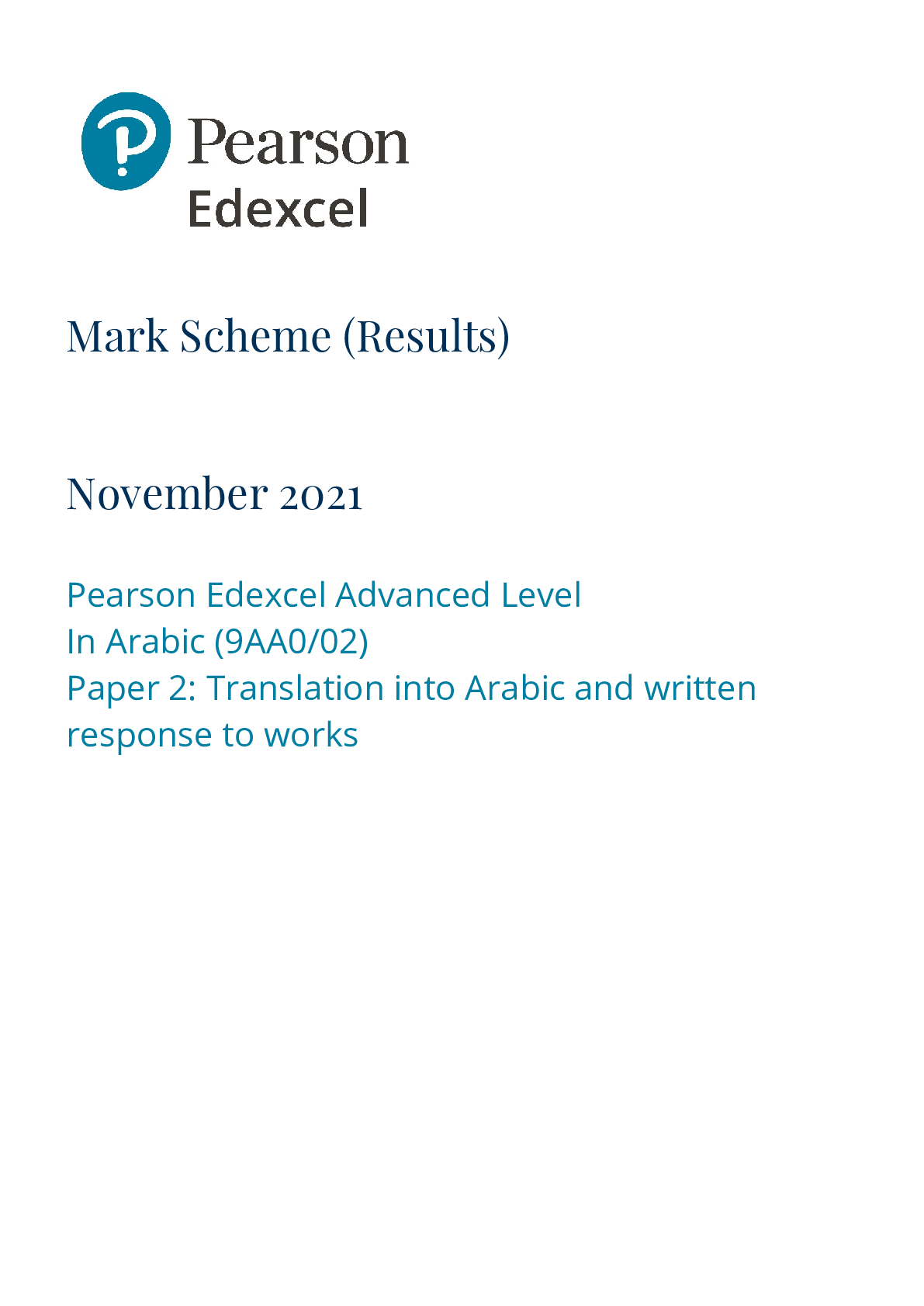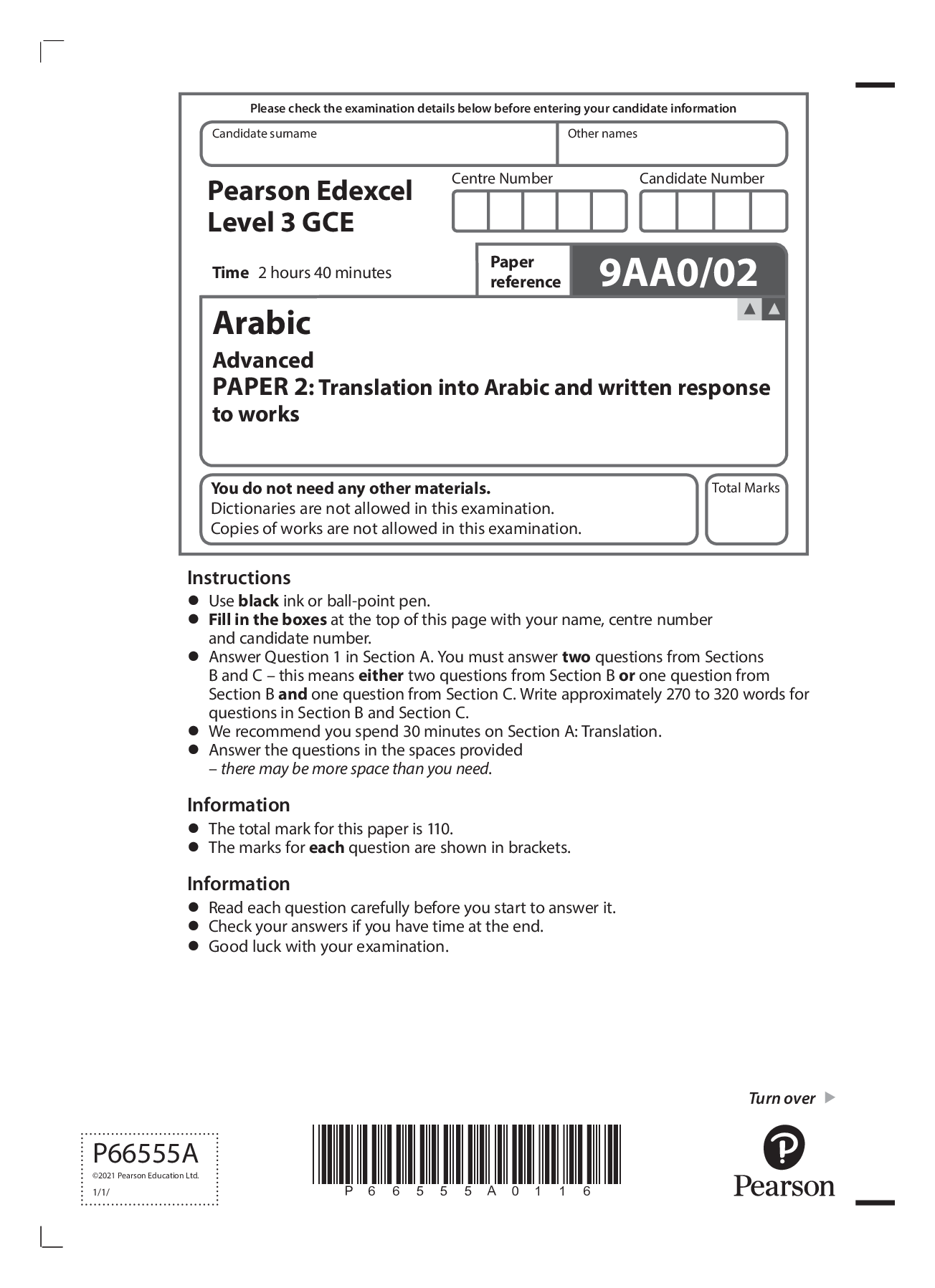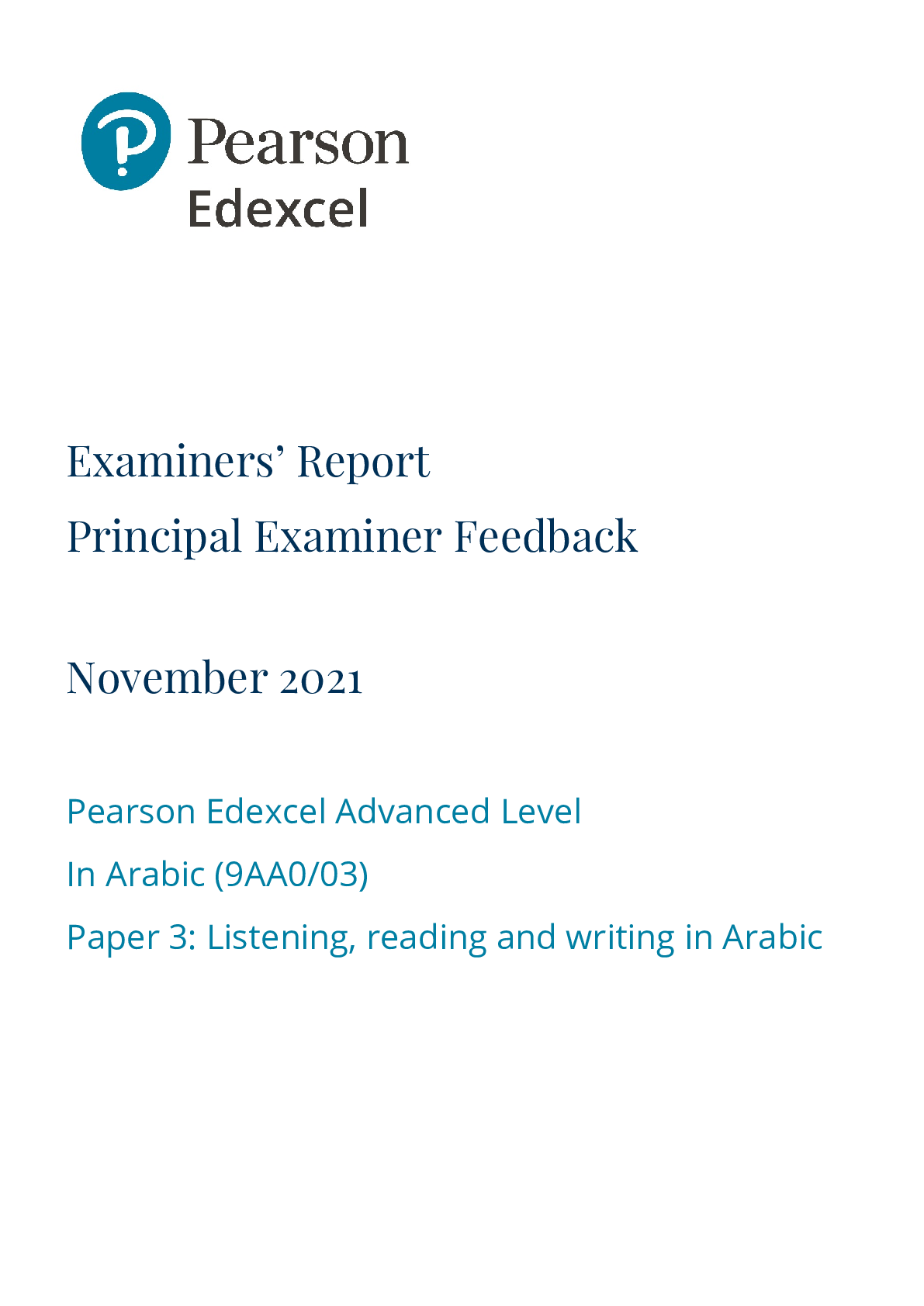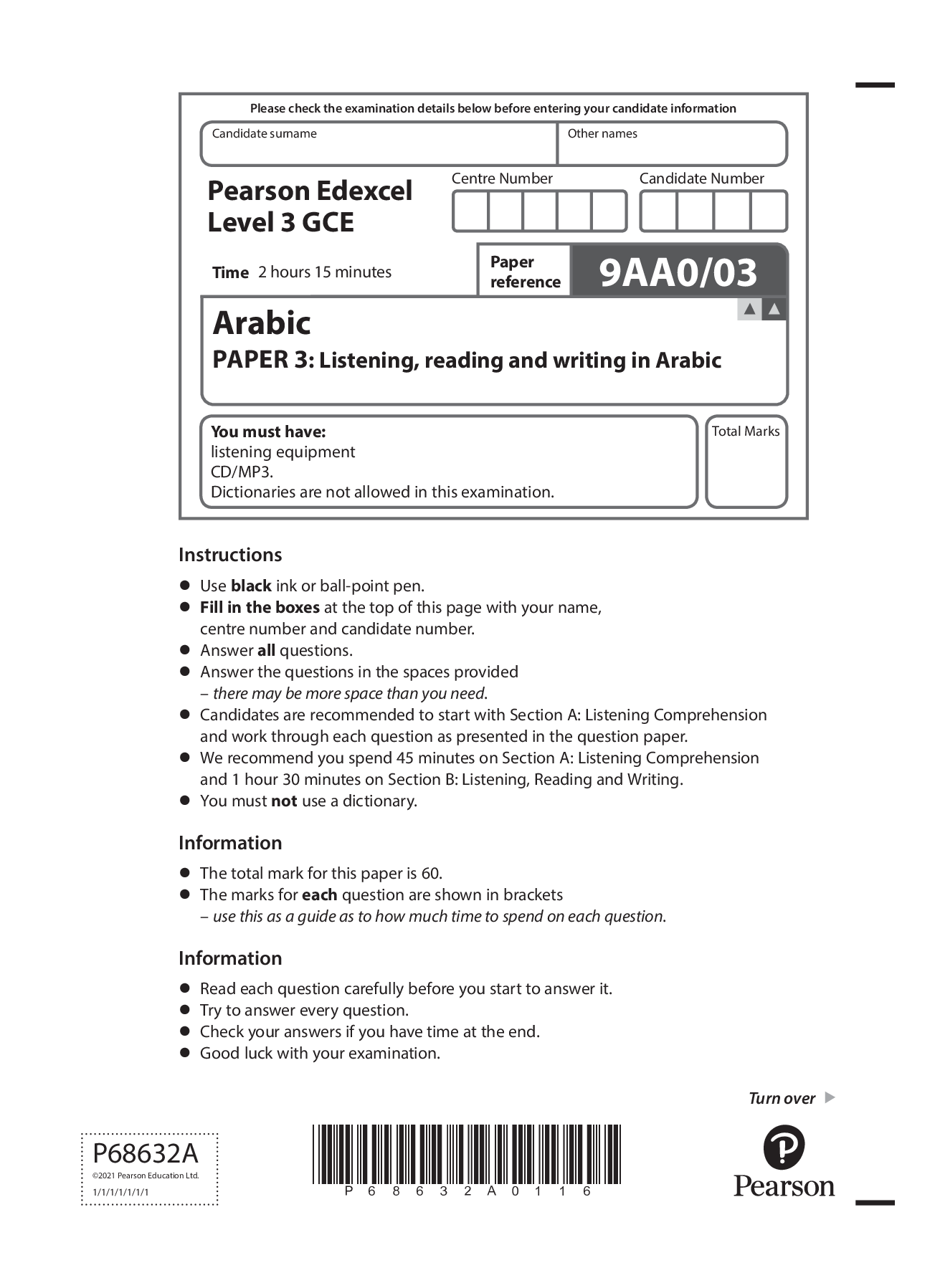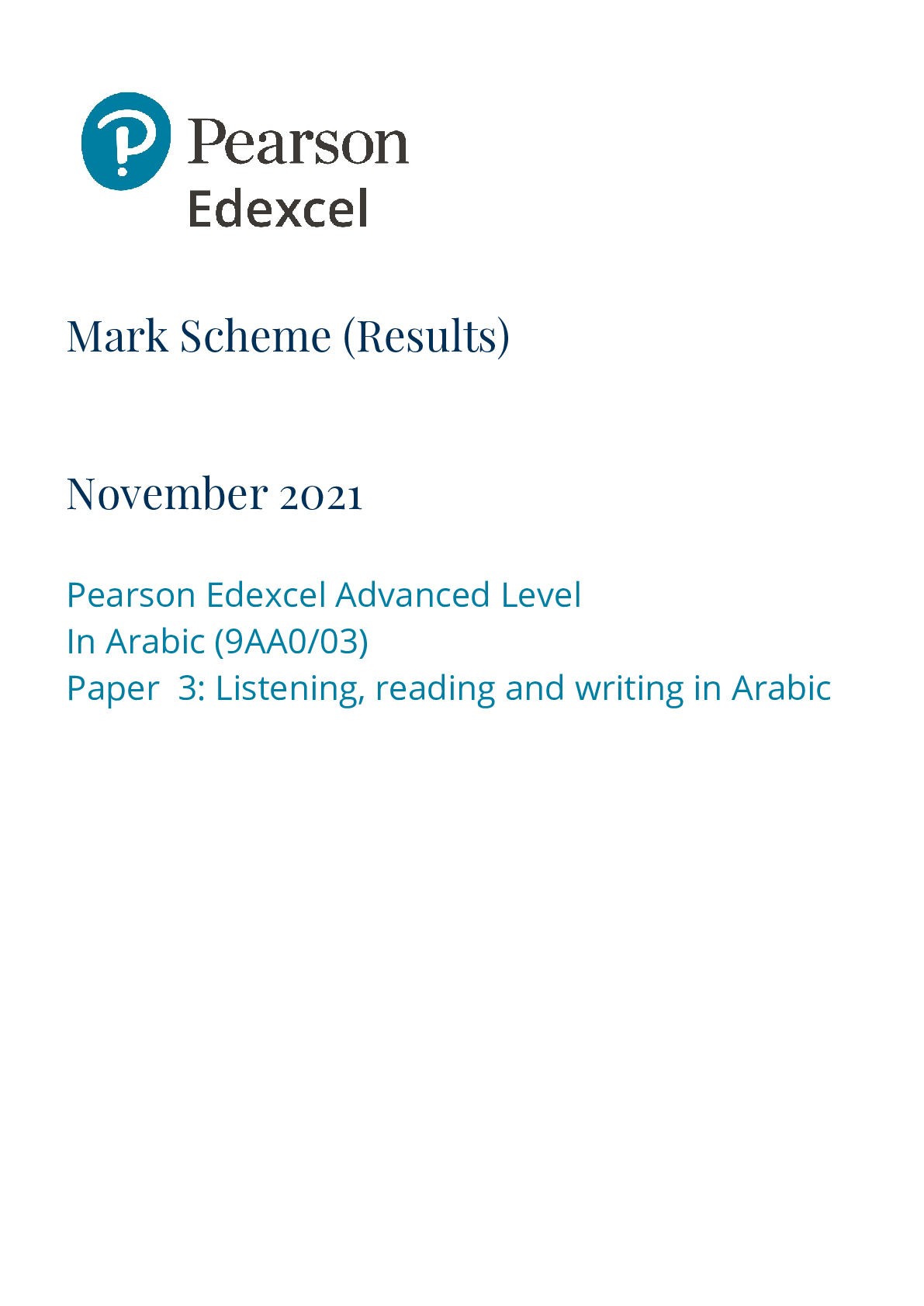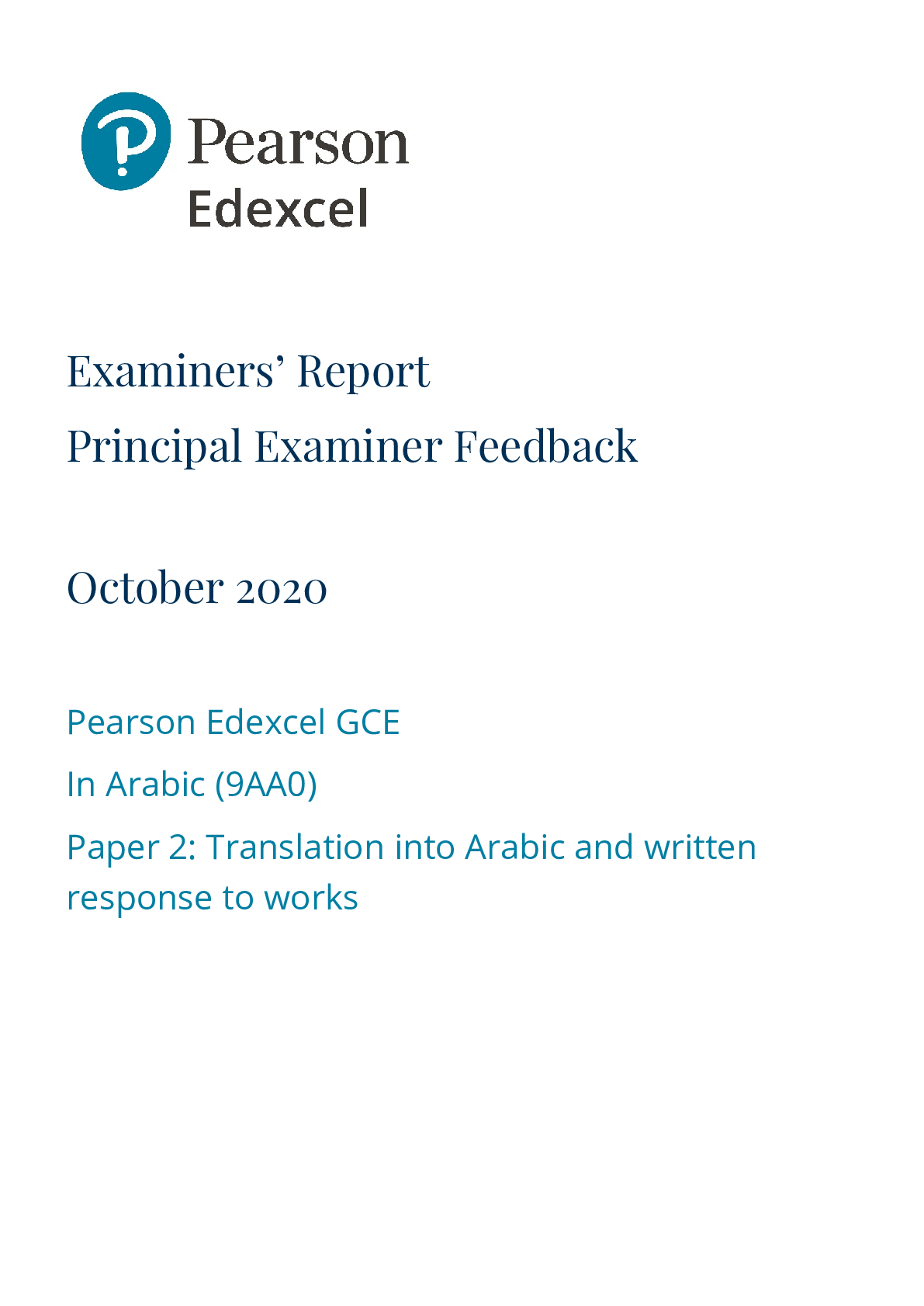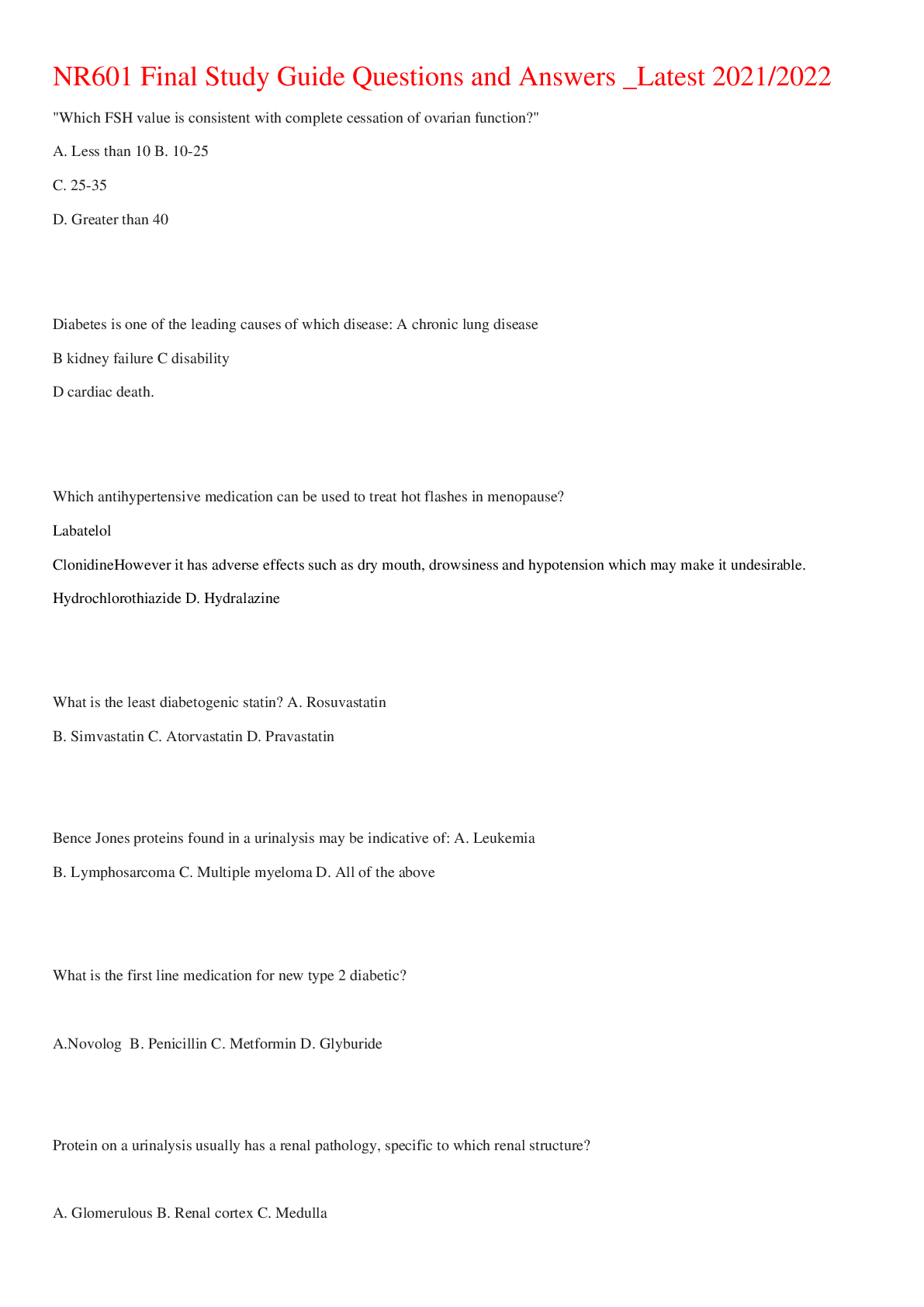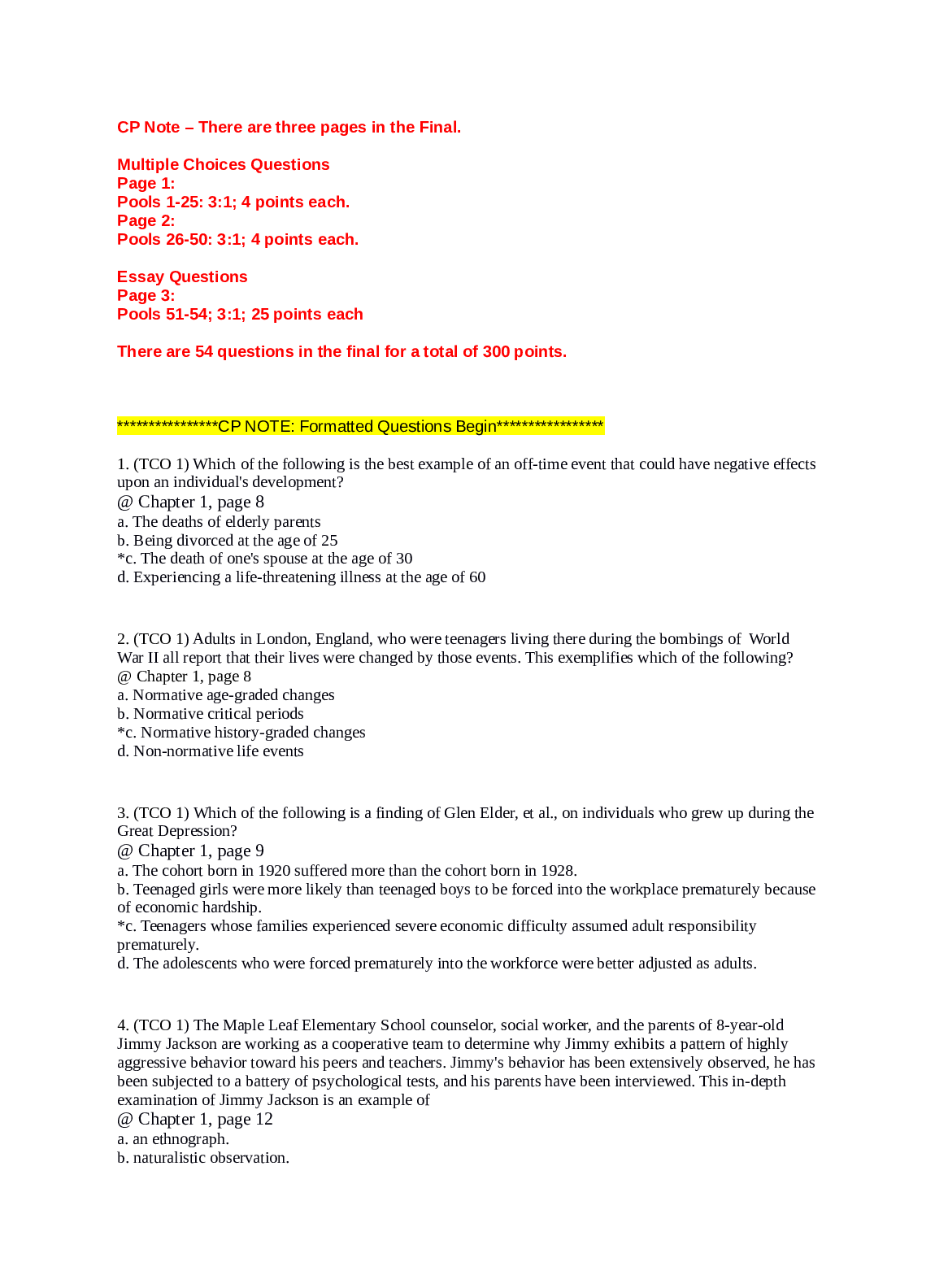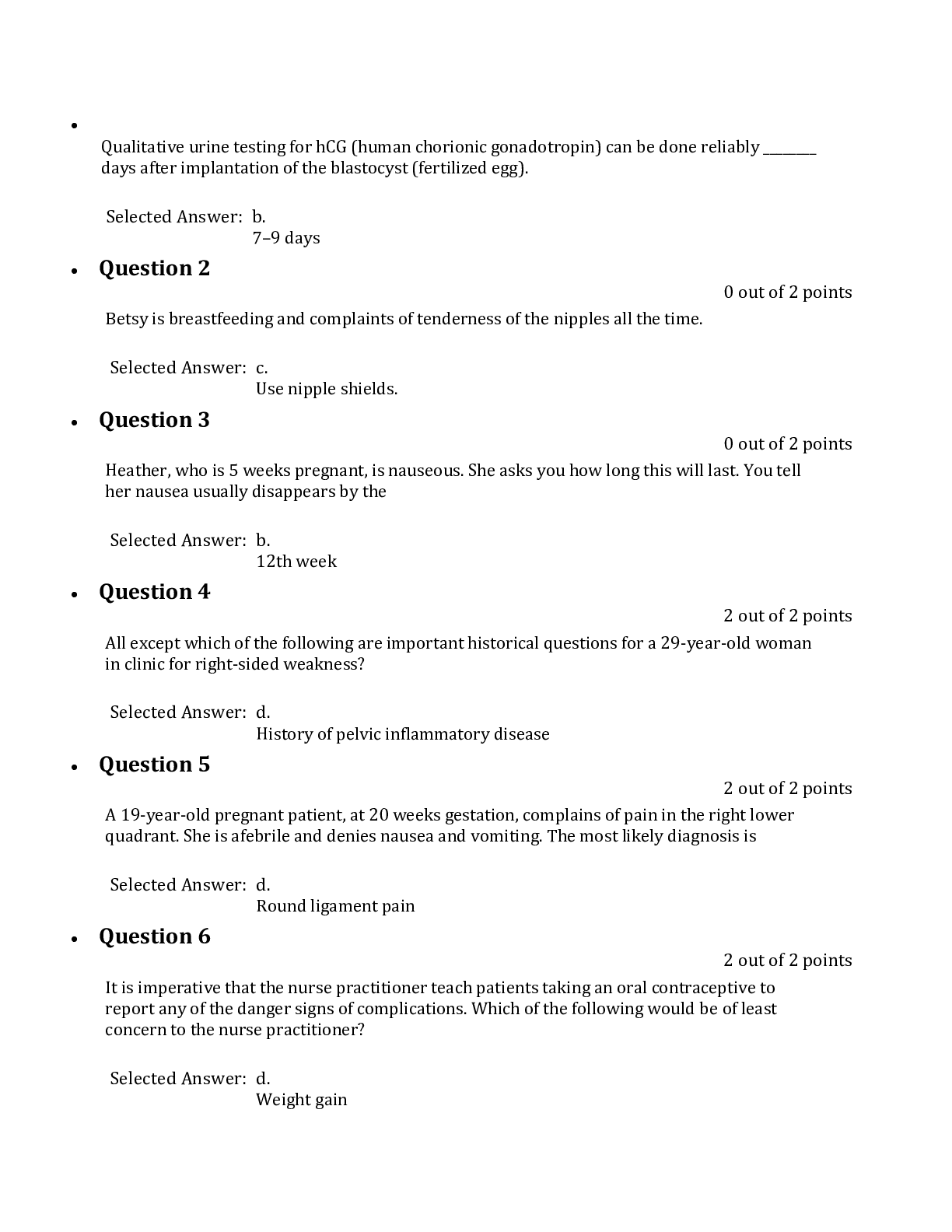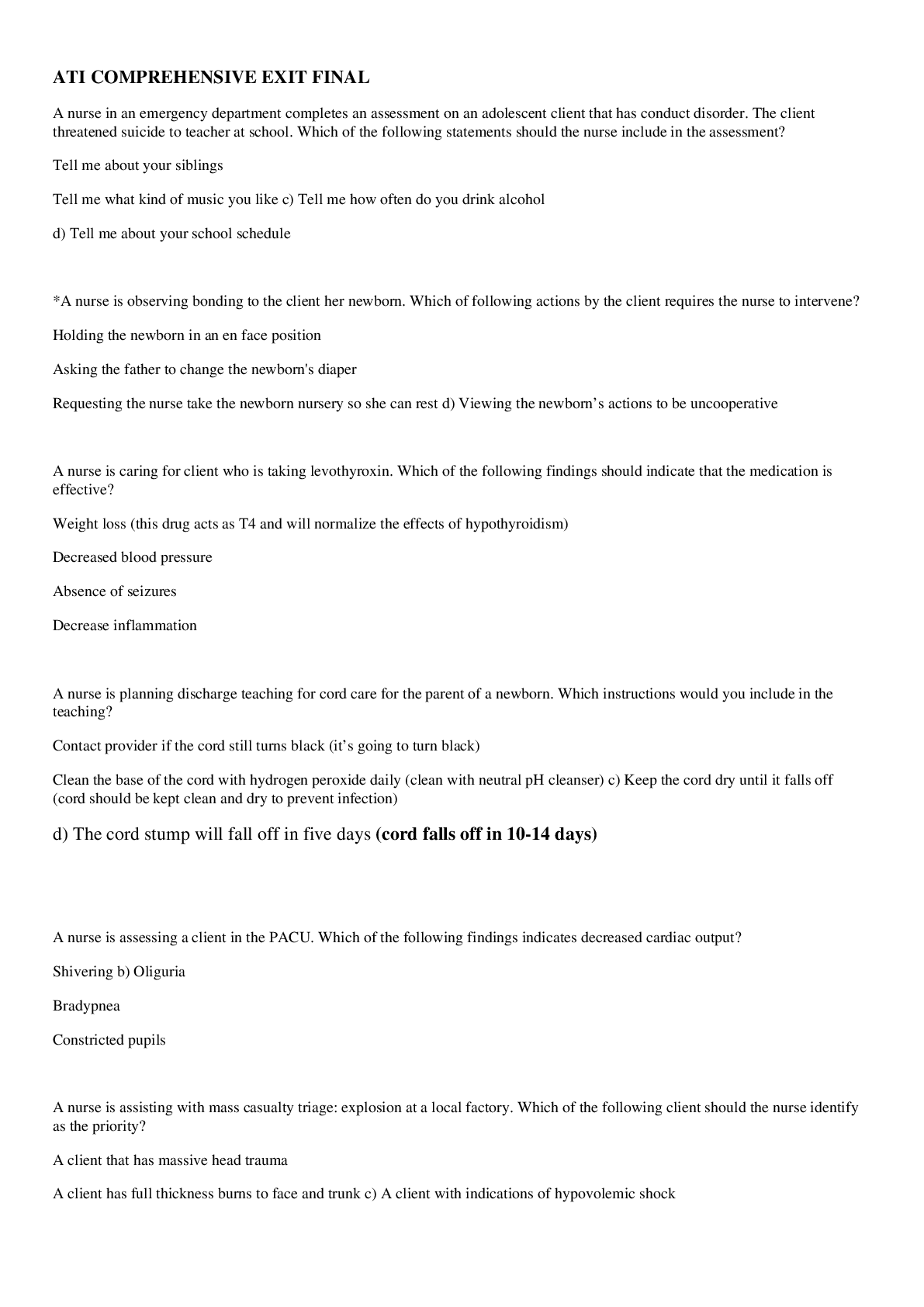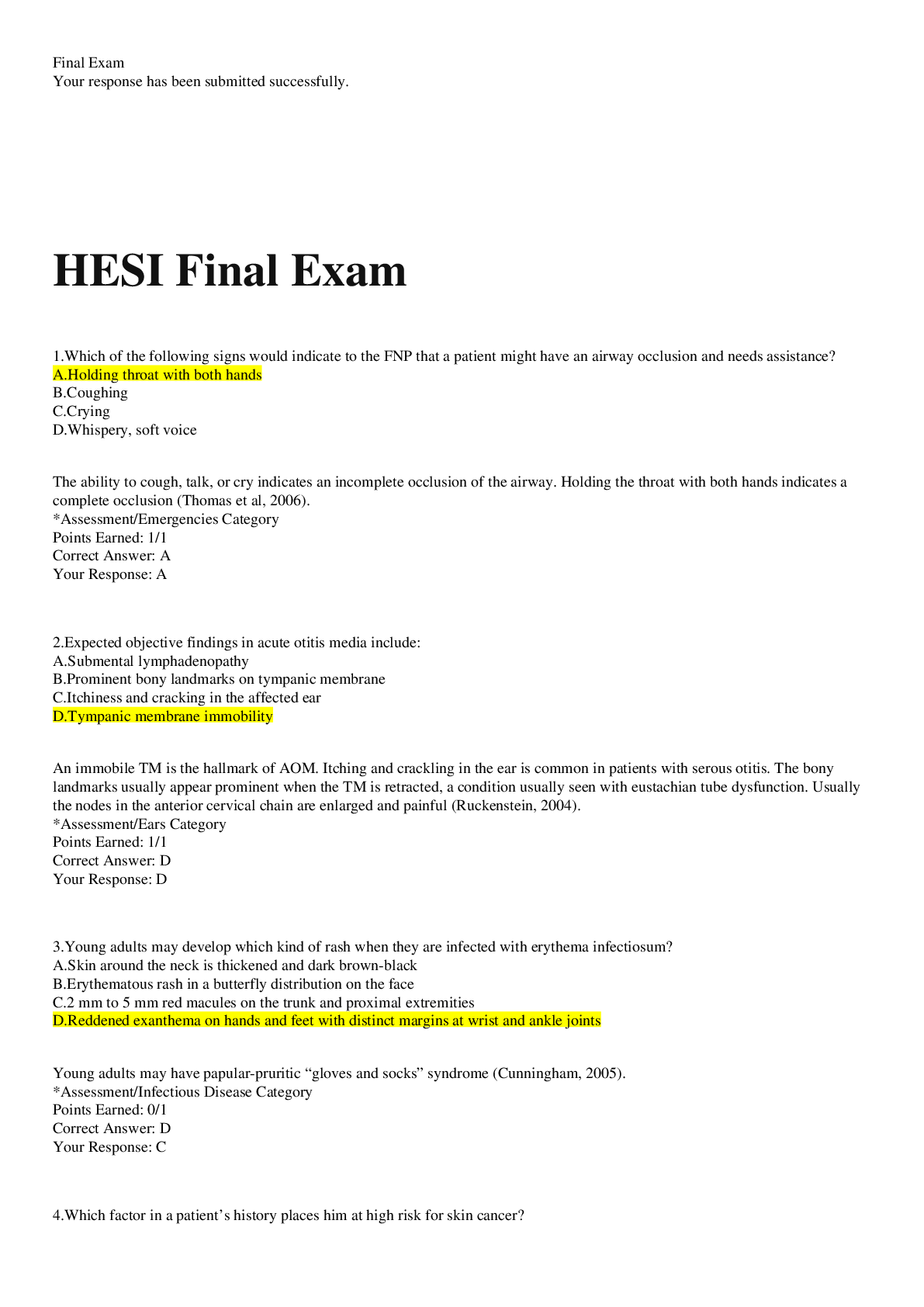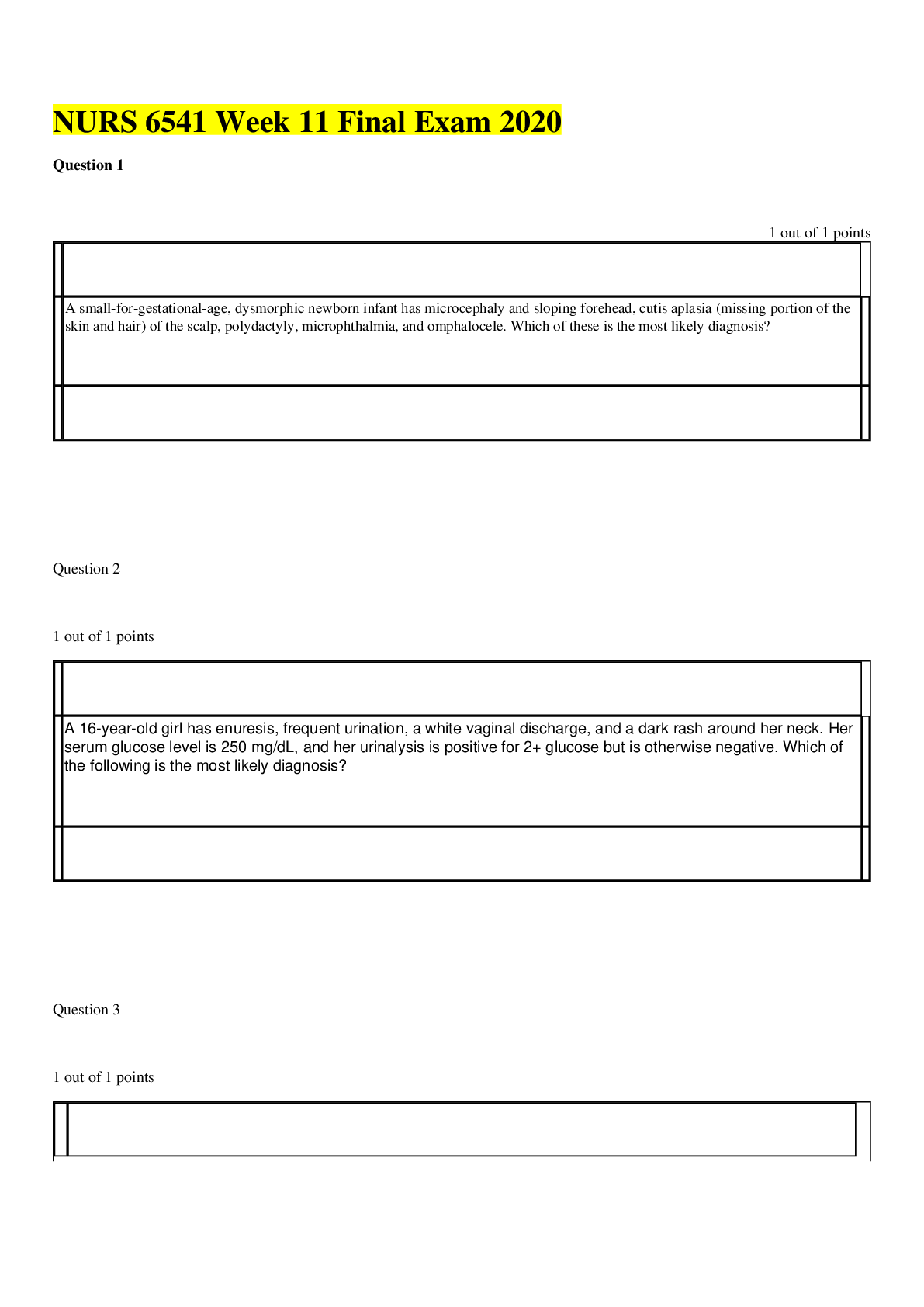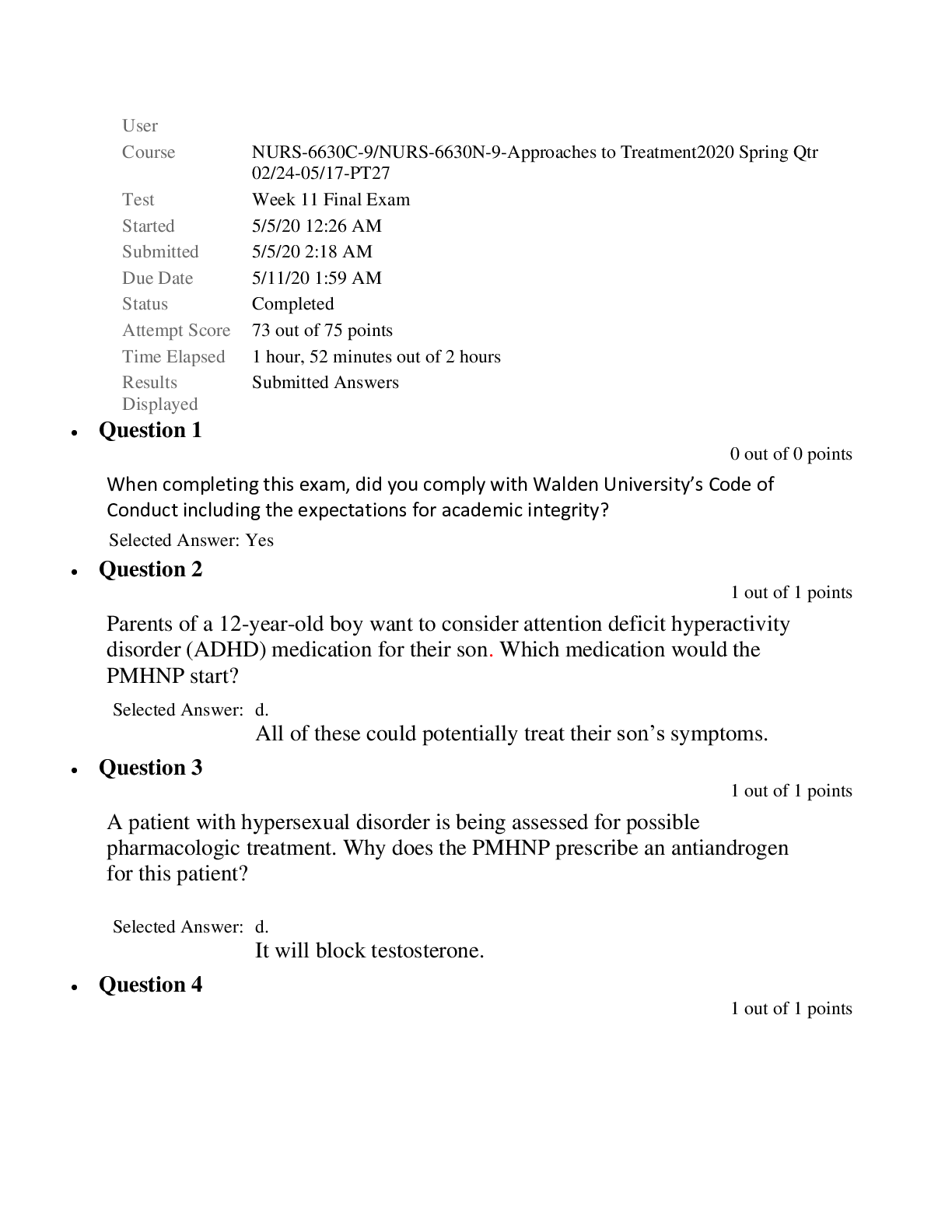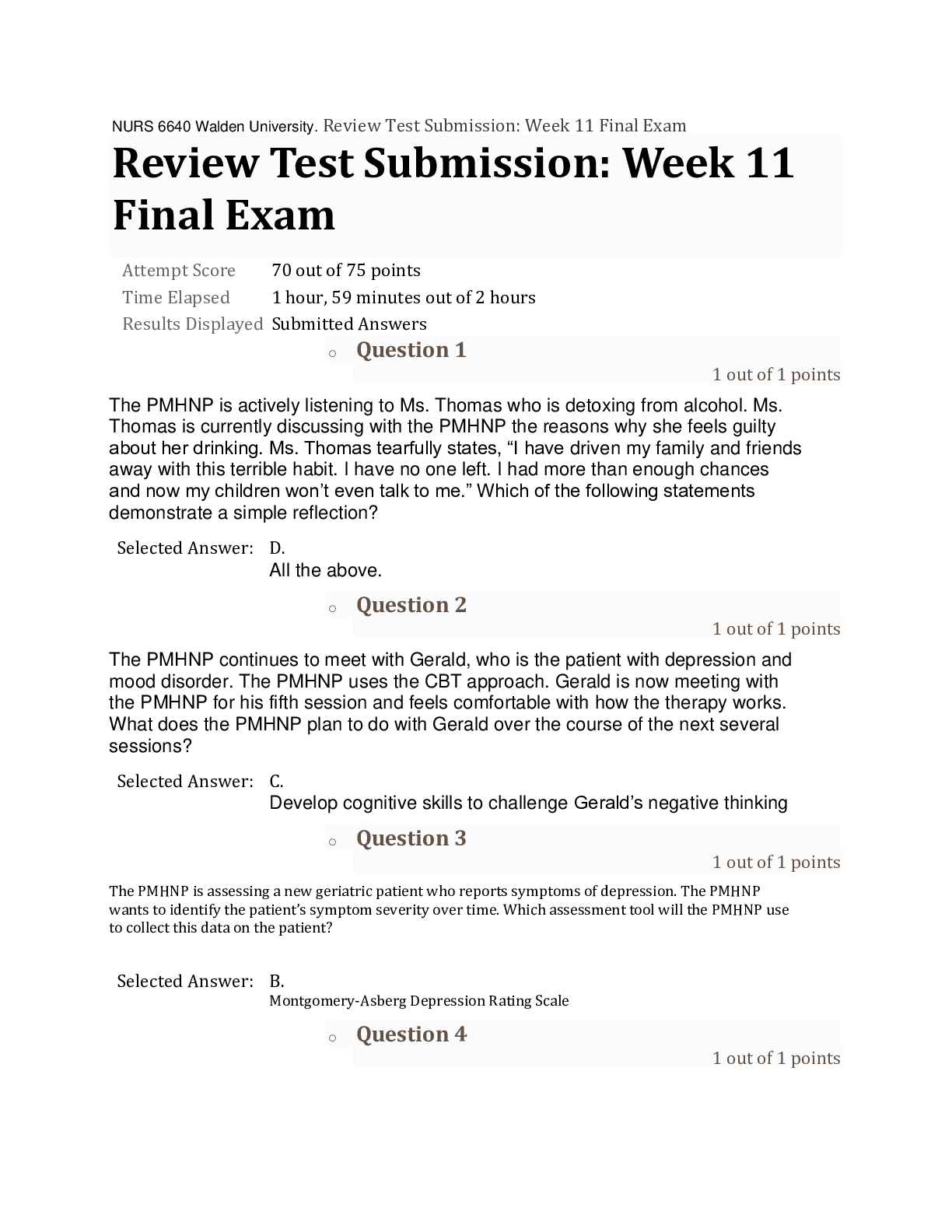NURS 6630 Final Exam (Questions and Answers)
Document Content and Description Below
NURS 6630 Final Exam (Questions and Answers) • Question 1 1 out of 1 points Why does the PMHNP avoid prescribing clozapine (Clozaril) as a first-line treatment to the patient with psychosis a... nd aggression? Selected Answer: A. There is too high a risk of serious adverse side effects. • Question 2 1 out of 1 points A 75-year-old male patient diagnosed with Alzheimer’s disease presents with agitation and aggressive behavior. The PMHNP determines which of the following to be the best treatment option? Selected Answer: D. Citalopram (Celexa) or Escitalopram (Lexapro) • Question 3 1 out of 1 points A group of nursing students seeks further clarification from the PMHNP on how cholinesterase inhibitors are beneficial for Alzheimer’s disease patients. What is the appropriate response? Selected Answer: D. Both “A” & “C.” • Question 4 1 out of 1 points The PMHNP understands that slow-dose extended release stimulants are most appropriate for which patient with ADHD? Selected Answer: A. 8-year-old patient • Question 5 1 out of 1 points An 8-year-old patient presents with severe hyperactivity, described as “ants in his pants.” Based on self-report from the patient, his parents, and his teacher; attention deficit hyperactivity disorder (ADHD) is suspected. What medication is the PMNHP most likely to prescribe? Selected Answer: A. Methylphenidate (Ritalin, Concerta) • Question 6 1 out of 1 points A patient with fibromyalgia and major depression needs to be treated for symptoms of pain. Which is the PMHNP most likely to prescribe for this patient? Selected Answer: Duloxetine (Cymbalta) • Question 7 1 out of 1 points Mrs. Kenner is concerned that her teenage daughter spends too much time on the Internet. She inquires about possible treatments for her daughter’s addiction. Which response by the PMHNP demonstrates understanding of pharmacologic approaches for compulsive disorders? Selected Answer: D. “There are no evidence-based treatments for Internet addiction, but there are behavioral therapies your daughter can try.” • Question 8 1 out of 1 points An adult patient presents with a history of alcohol addiction and attention deficit hyperactivity disorder (ADHD). Given these comorbidities, the PMHNP determines which of the following medications may be the best treatment option? Selected Answer: C. Atomoxetine (Strattera) • Question 9 1 out of 1 points Which of the following is a true statement regarding the use of stimulants to treat attention deficit hyperactivity disorder (ADHD)? Selected Answer: B. Signal strength output is increased by dialing up the release of dopamine (DA) and norepinephrine (NE). • Question 10 1 out of 1 points A 71-year-old male patient comes to an appointment with his 65-year-old wife. They are both having concerns related to her memory and ability to recognize faces. The PMNHP is considering prescribing memantine (Namenda) based on the following symptoms: Selected Answer: C. Amnesia, apraxia, agnosia • Question 11 1 out of 1 points The PMHNP is meeting with the parents of an 8-year-old patient who is receiving an initial prescription for D-amphetamine. The PMHNP demonstrates appropriate prescribing practices when she prescribes the following dose: Selected Answer: A. The child will be prescribed 2.5 mg. • Question 12 1 out of 1 points The PMHNP is assessing a patient who presents with elevated levels of brain amyloid as noted by positron emission tomography (PET). What other factors will the PMHNP consider before prescribing medication for this patient, and what medication would the PMHNP want to avoid given these other factors? Selected Answer: D. Both “A” & “B” • Question 13 0 out of 1 points The PMHNP is attempting to treat a patient’s chronic insomnia and wishes to start with an initial prescription that has a half-life of approximately 1–2 hours. What is the most appropriate prescription for the PMHNP to make? Selected Answer: B. Quazepam (Doral) • Question 14 1 out of 1 points The PMHNP is caring for a patient on risperidone (Risperdal). Which action made by the PMHNP exhibits proper care for this patient? </p? Selected Answer: C. Titrating the dose by increasing it every 5–7 days • Question 15 0 out of 1 points A patient diagnosed with obsessive compulsive disorder has been taking a high-dose SSRI and is participating in therapy twice a week. He reports an inability to carry out responsibilities due to consistent interferences of his obsessions and compulsions. The PMHNP knows that the next step would be which of the following? Selected Answer: D. Keep his SSRI dosage the same and add a low-dose TCA. .............continued [Show More]
Last updated: 1 year ago
Preview 1 out of 13 pages
Instant download
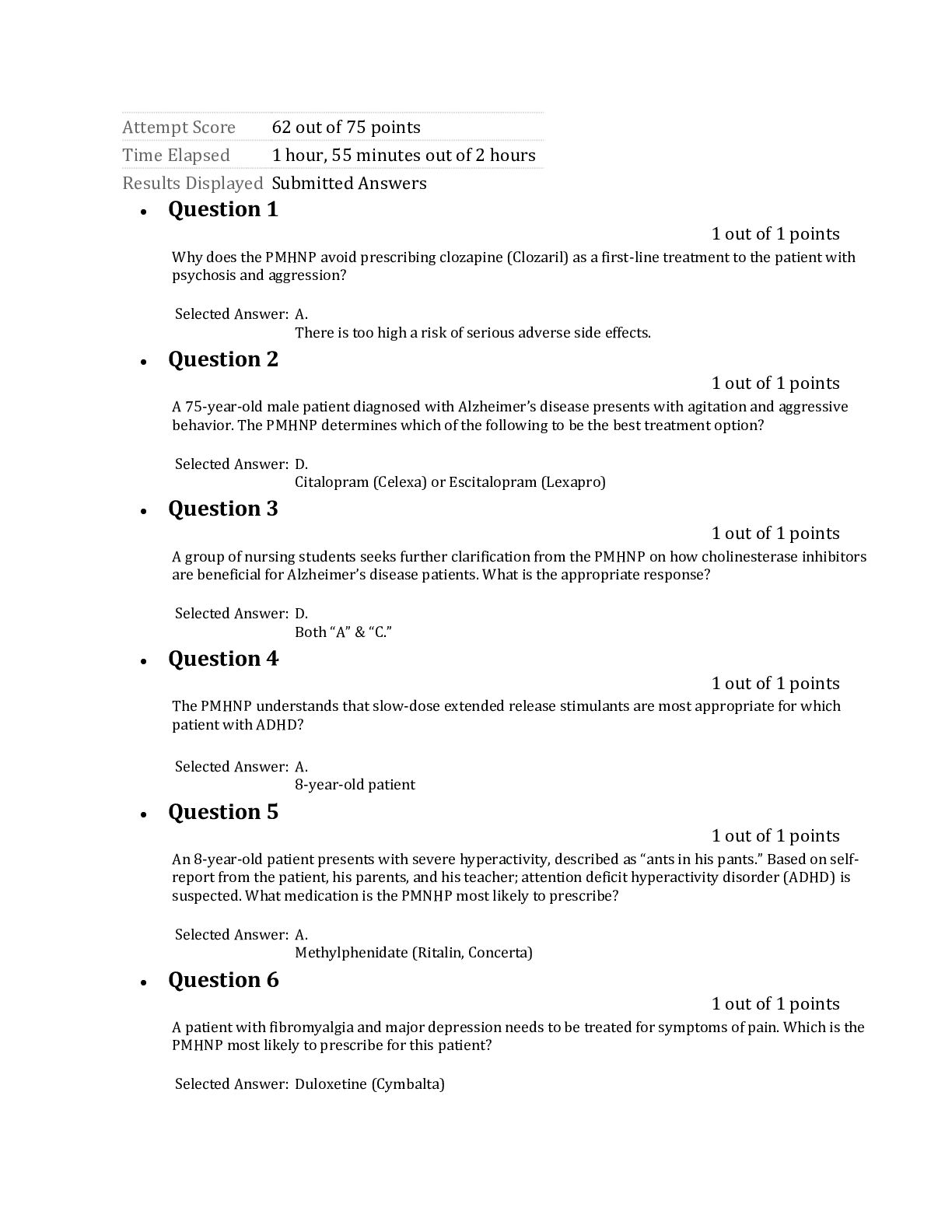
Buy this document to get the full access instantly
Instant Download Access after purchase
Add to cartInstant download
Also available in bundle (1)
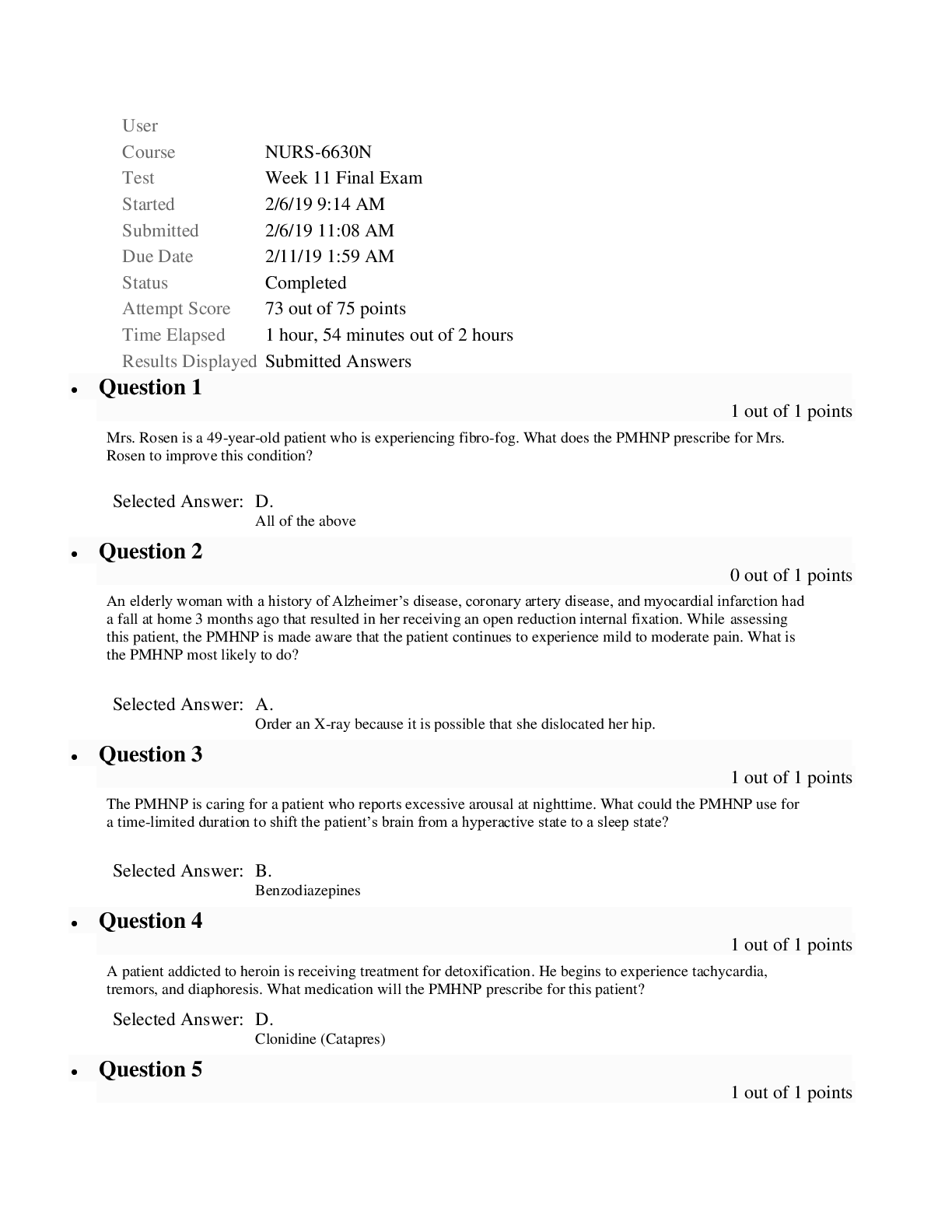
NURS 6630C Final Exam (7 Versions) ; Questions and Answers
NURS 6630C Final Exam (7 Versions) ; Questions and Answers
By YourTutor 3 years ago
$55.5
7
Reviews( 0 )
Document information
Connected school, study & course
About the document
Uploaded On
Feb 01, 2021
Number of pages
13
Written in
Additional information
This document has been written for:
Uploaded
Feb 01, 2021
Downloads
0
Views
179

